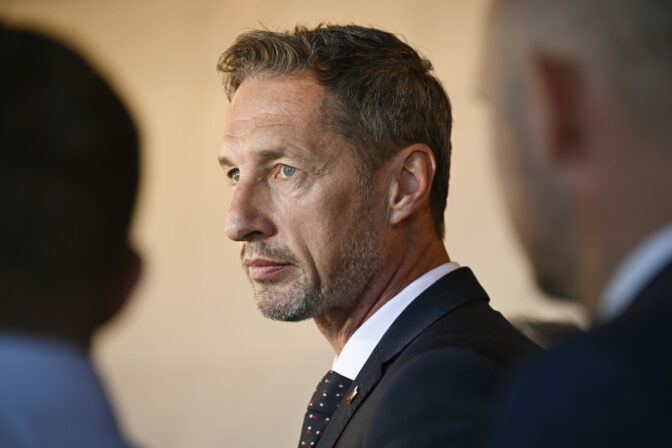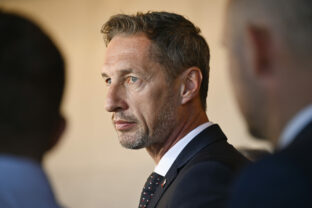BRATISLAVA, October 27, (WEBNOVINY) — Greece will receive more than the eurozone leaders initially agreed on after all but as Prime Minister Iveta Radicova said at the press briefing after the long night of negotiations of eurozone leaders in Brussels, this should not affect Slovakia’s contribution. Greece should receive EUR 21 billion more than EUR 109 billion agreed in July according to the new credit program, i.e. first loans that the country is to receive from the bailout fund. Individual states should club together for this extension. “The Slovak Republic is exempt from participation in this extension. It is possible to negotiate on the issue and keep one’s word,“ said Radicova in reference to the agreement and added that Slovakia’s share in the Greek program from the bailout mechanism would thus be EUR 200 million lower.
The Prime Minster has also turned down assumptions implying that Slovakia is taking up position of a non-team player as the country was referred to after parliament’s first unsuccessful attempt to approve the extended bailout fund. “This non-team player has made an unparalleled precedent. The Slovak government has collapsed for the possibility to at least take part in summits,” said Radicova, adding that she arrived at the meeting with an unambiguous mandate, which did not permit any other extension of Slovakia’s contribution, which she said eurozone partners respected.
The summit of eurozone leaders also agreed a plan for Greece to gradually reduce its public debt by one-third to 120 percent of GDP. This plan also counts on banks‘ 50-percent write-down of the value of Greek bond holdings, which should slash country’s overall debt by EUR 100 billion.
The leaders have also come to an agreement on boosting effective capacity of the bailout fund and leverage existing guarantees up to EUR 1 trillion from present EUR 440 billion. The volume of guarantees in the system would thus in fact not increase but effectively available bailout fund’s sources would be extended via financial operations. Radicova added that finance ministers would deal with exact technical procedures of this extension in November.
Heads of state and governments have also settled on the proposed extension in capital adequacy of bank houses to 9 percent, which would mean that banks have to increase their capital by over EUR 100 billion. Radicova opines that measures that would prevent banks from meeting this condition at the expense of their daughter companies have been adopted, which should also protect banks operating in Slovakia from potential capital outflow.
The eurozone representatives have also backed setting condition that banks’ capital has to be increased from sources of banks alone at first and only after banks are unable to increase their capital to the required level, the government of the state would enter the game and bailout fund would be used only after the government fails to fulfill the condition. Radicova thinks that banks will not be able to extend their capital at the expense of providing loans since it could lead to a slowdown in the economic growth.
SITA












